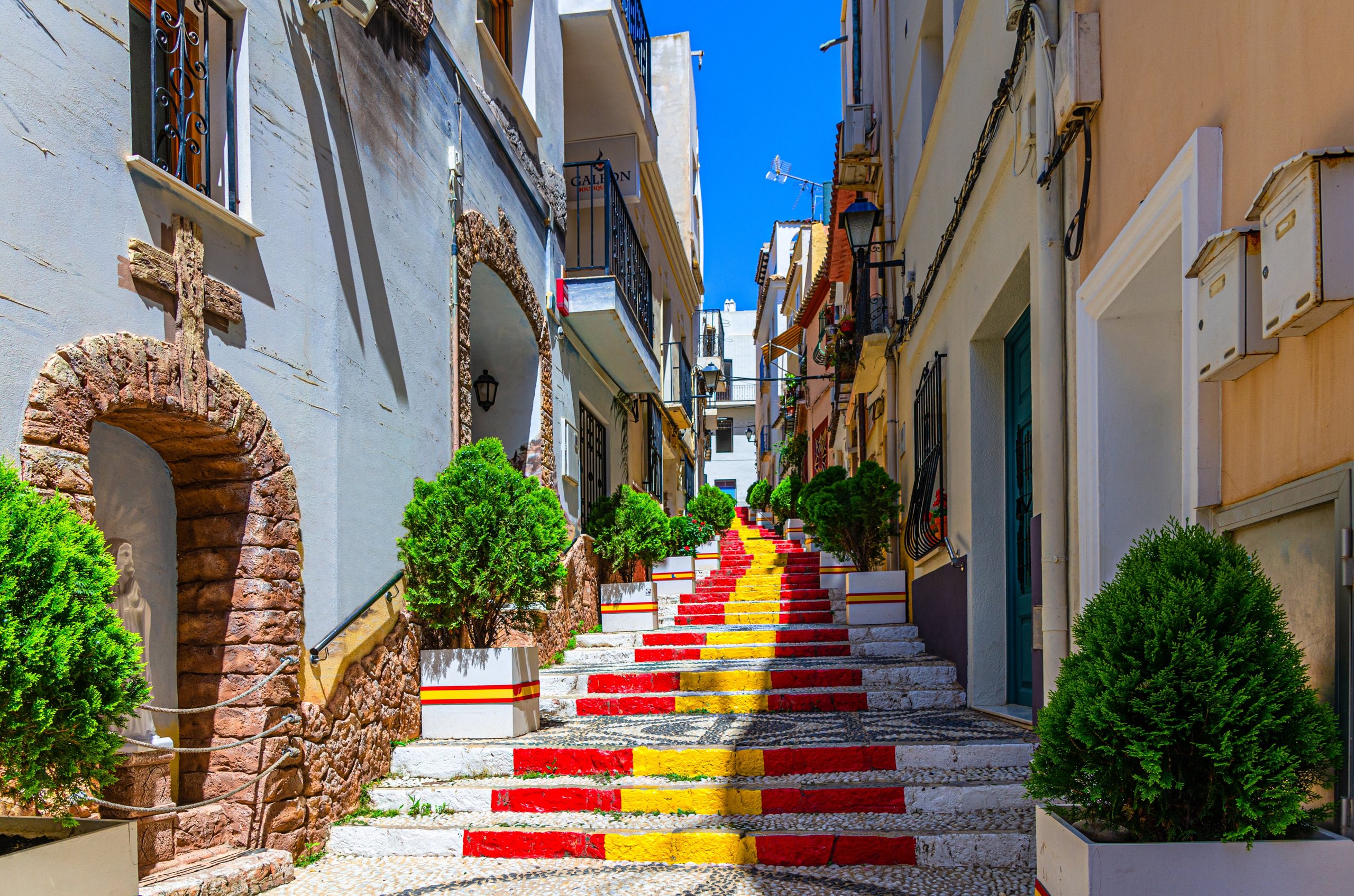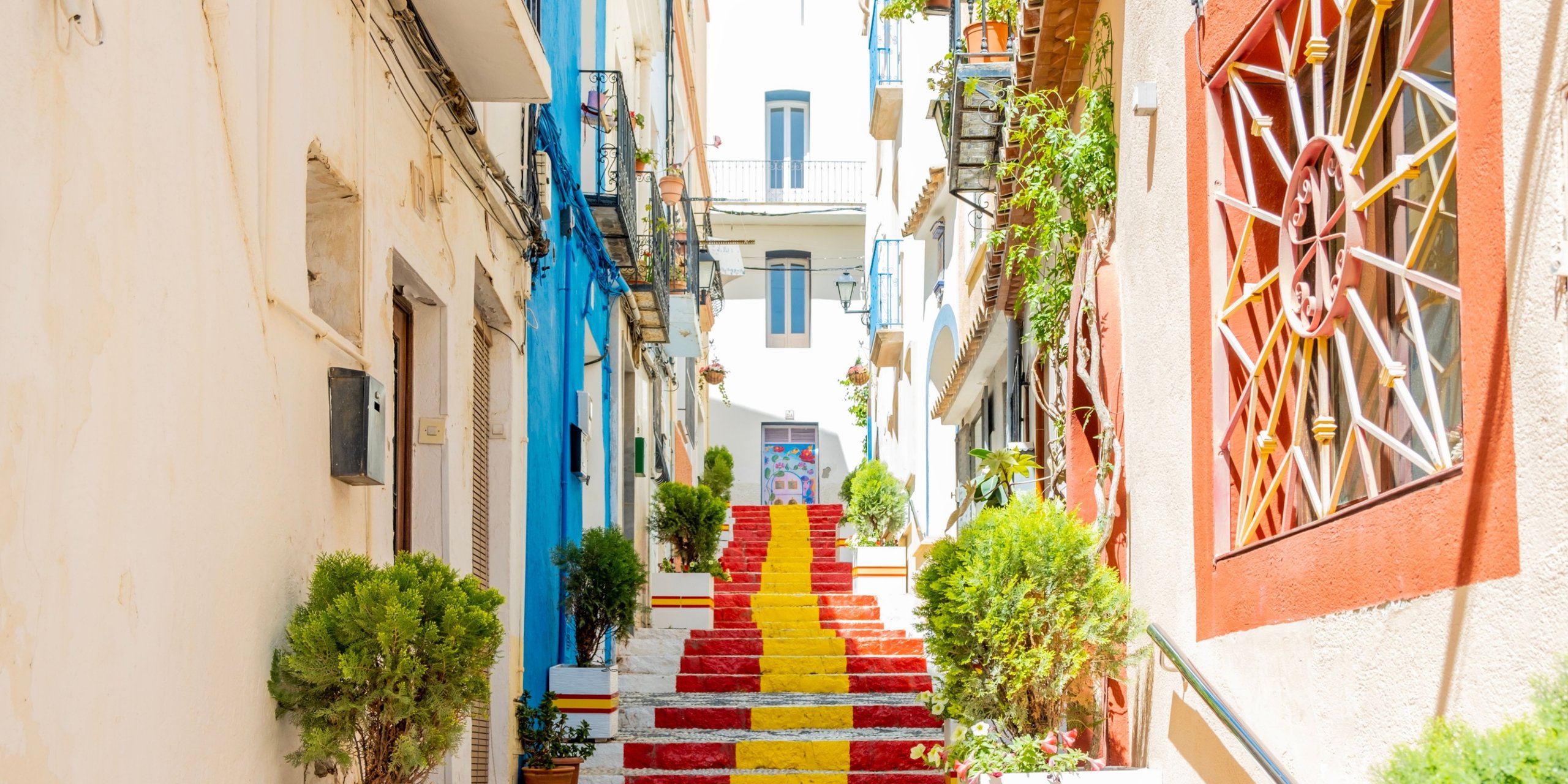Buying a home in Spain doesn’t automatically entitle you to residency, but it can be a vital step in the process. In this guide, we break down the visa options that can lead to temporary or permanent residency, including the role property ownership plays in supporting your application.
If you’re hoping to spend more than 90 days a year in your Spanish property, you’ll need to apply for the right visa. While buying a property shows your intent to settle, it’s not a direct path to residency. The good news is, Spain offers several visa options that allow non-EU citizens to stay longer, some of which can lead to permanent residency and even citizenship.
In this guide, we’ll explain the visa types available, how property ownership plays a supporting role and what steps you’ll need to take to secure your future in Spain.
Download the Spain Buying Guide
Contents
Understanding the 90/180 day rule
Owning property in Spain doesn’t exempt you from Schengen rules. Non-EU nationals – including British, American, Canadian, Australian and New Zealand passport holders – can only spend 90 days within any 180-day period in the Schengen Area. After that, you’ll need to leave the entire zone, not just Spain.
This restriction is critical if you’re planning to split your time between Spain and your home country. If you want to stay longer than 90 days, you’ll need to apply for a residence visa.
Temporary Spanish residence
Spain offers a one-year temporary residence visa, renewable for up to five years. While property ownership isn’t enough on its own to qualify, it does support your application. You may be eligible if you fall into one of the following categories:
- Spouse, child or parent of a Spanish citizen
- University or college student in Spain
- Self-employed with a viable business in Spain
- Investor making a significant contribution to Spain’s economy or property market
- Worker with a valid Spanish job offer

Visa routes to Spanish residency
If you’re a non-EU citizen buying a home with the goal of living in Spain, you’ll need a visa that leads to residency. Here are the main types available:
| Visa type | Requirements | Work allowed? |
|---|---|---|
| Non-lucrative visa (NLV) | €28,800 in passive income plus €7,200 per dependent, private health insurance, clean police record | No |
| Digital nomad visa | Remote income from outside Spain, health insurance, background check, minimum income (varies) | Yes – for foreign employers |
How to apply for a Spanish visa
Visa applications are usually submitted at the Spanish embassy or consulate in your home country. Here’s what you’ll need:
- Proof of address in Spain (title deeds or rental agreement)
- Your NIE number (required for most legal steps in Spain)
- Valid passport
- Evidence of sufficient funds (bank certificate)
- Private medical insurance
- Completed visa application form
Speak to a Spain property expert
Registering your residency
Once in Spain, you’ll need to register with:
- The central register of foreign nationals (registro central de extranjeros)
- Your local town hall (padrón municipal) – required within three months of arrival
Failing to register can result in a fine of up to €3,000. Registration helps local authorities budget and deliver services like healthcare, waste collection and education.
Tax residency rules in Spain
If you live in Spain for more than 183 days in a calendar year, or if your main economic interests or close family are based there, you may be classed as a tax resident. This affects income tax, wealth tax and inheritance tax, so it’s worth seeking specialist advice before making the move.
Benefits of gaining Spanish residency
Becoming a resident unlocks access to Spain’s healthcare system, allows you to bring possessions into the country without paying duty and makes travel within the Schengen Area easier. After five years, you can apply for permanent residency. After ten years, you may be eligible for Spanish citizenship.
Residency also makes daily life easier: opening bank accounts, setting up utilities and registering for services all become smoother once you’re legally resident.
Search homes for sale in Spain
FAQs about residency and buying property in Spain
No – buying a property in Spain does not automatically grant you residency. However, owning a home can support your visa application by proving ties to the country and a place to live. For non-EU citizens, you’ll still need to apply for a residence visa through one of the approved routes.
Yes, non-residents can legally purchase property in Spain. You don’t need to be a resident to buy, but you’ll need an NIE number (tax ID) and must follow Spain’s property buying process. If you plan to stay longer than 90 days, you’ll need a visa or residence permit.
Spain doesn’t offer automatic residency just for buying property. However, there are other pathways to residency that don’t require investment – such as the non-lucrative visa or digital nomad visa – if you meet the income and other eligibility criteria.
You might also like:









